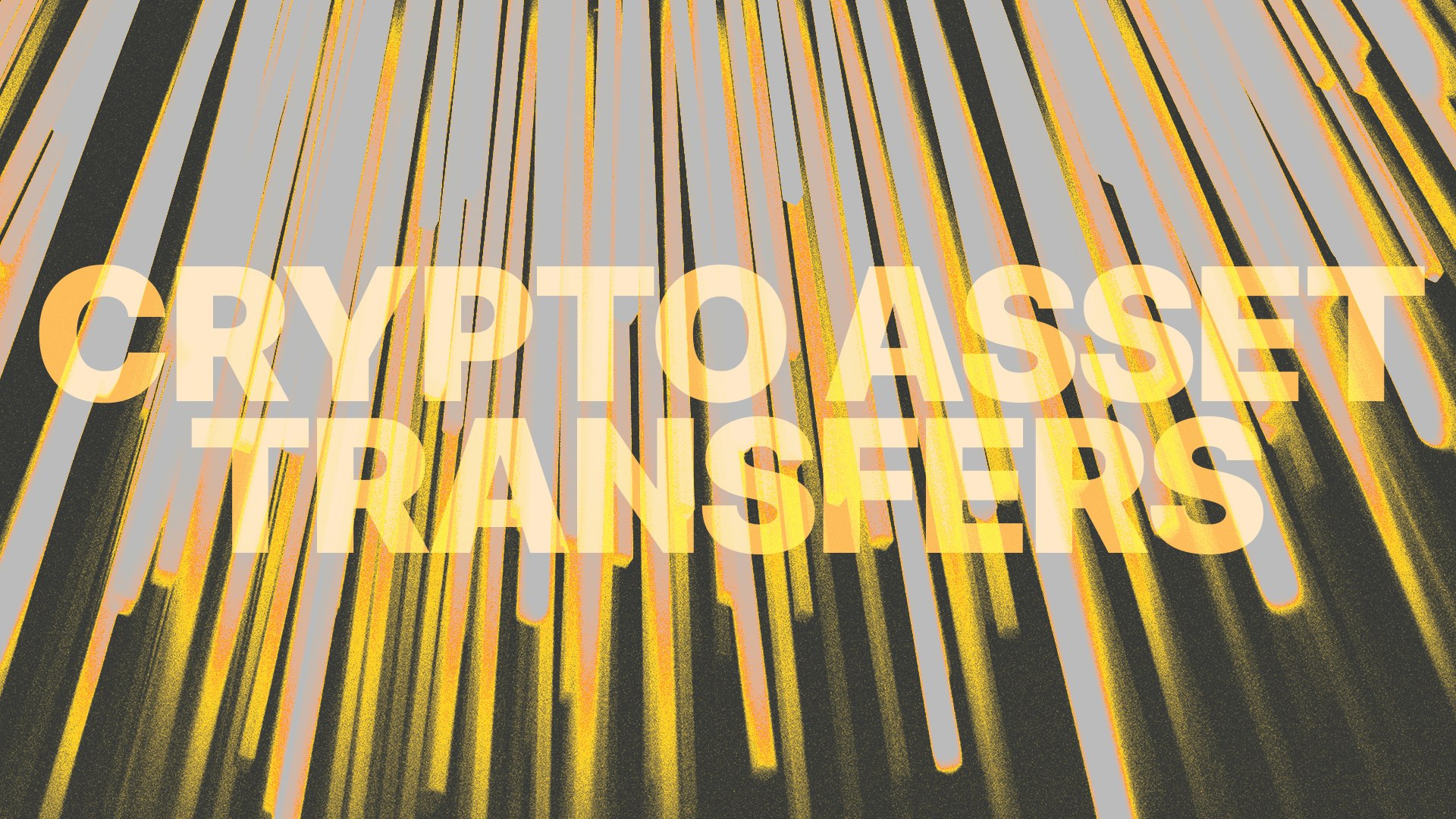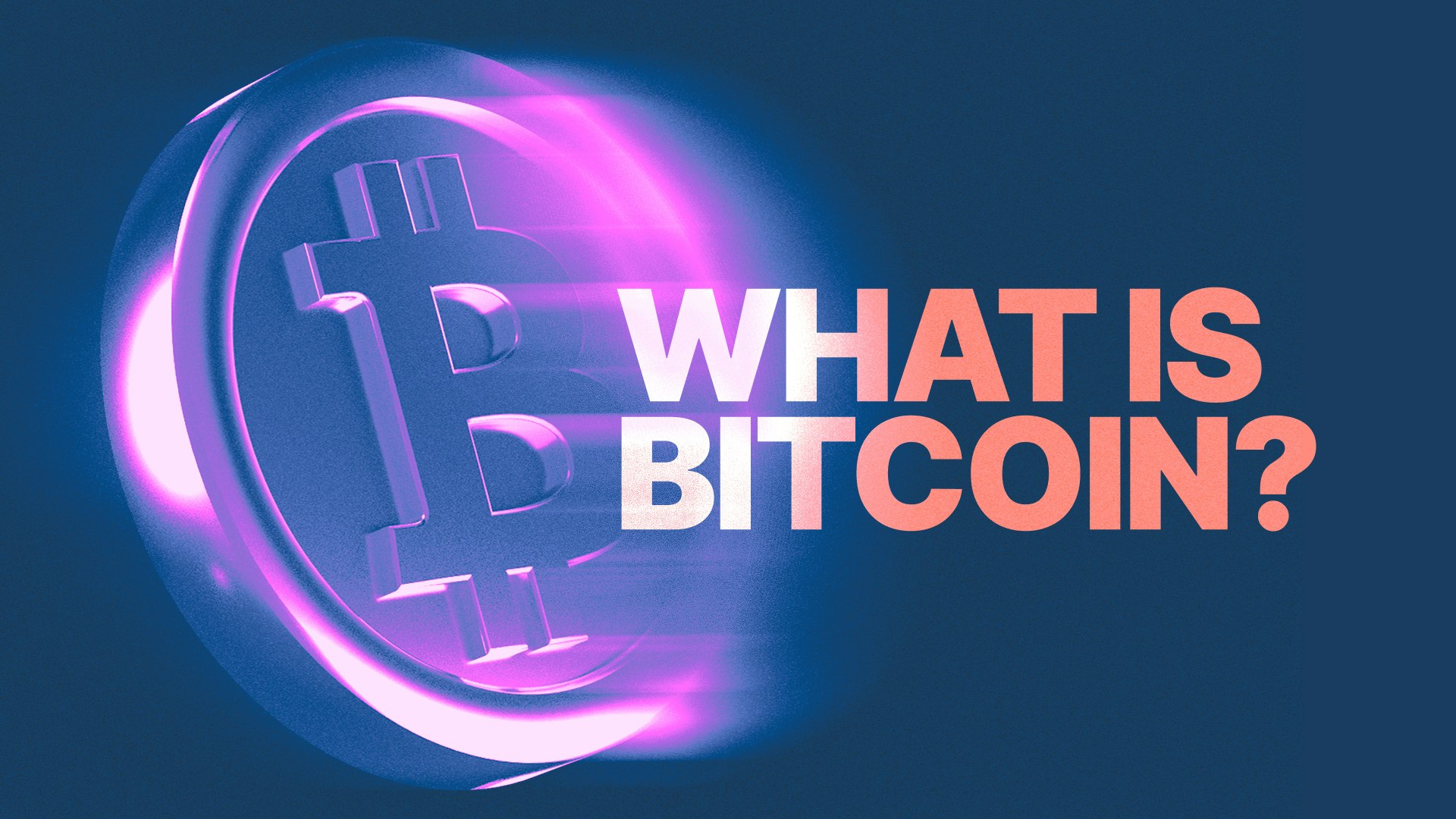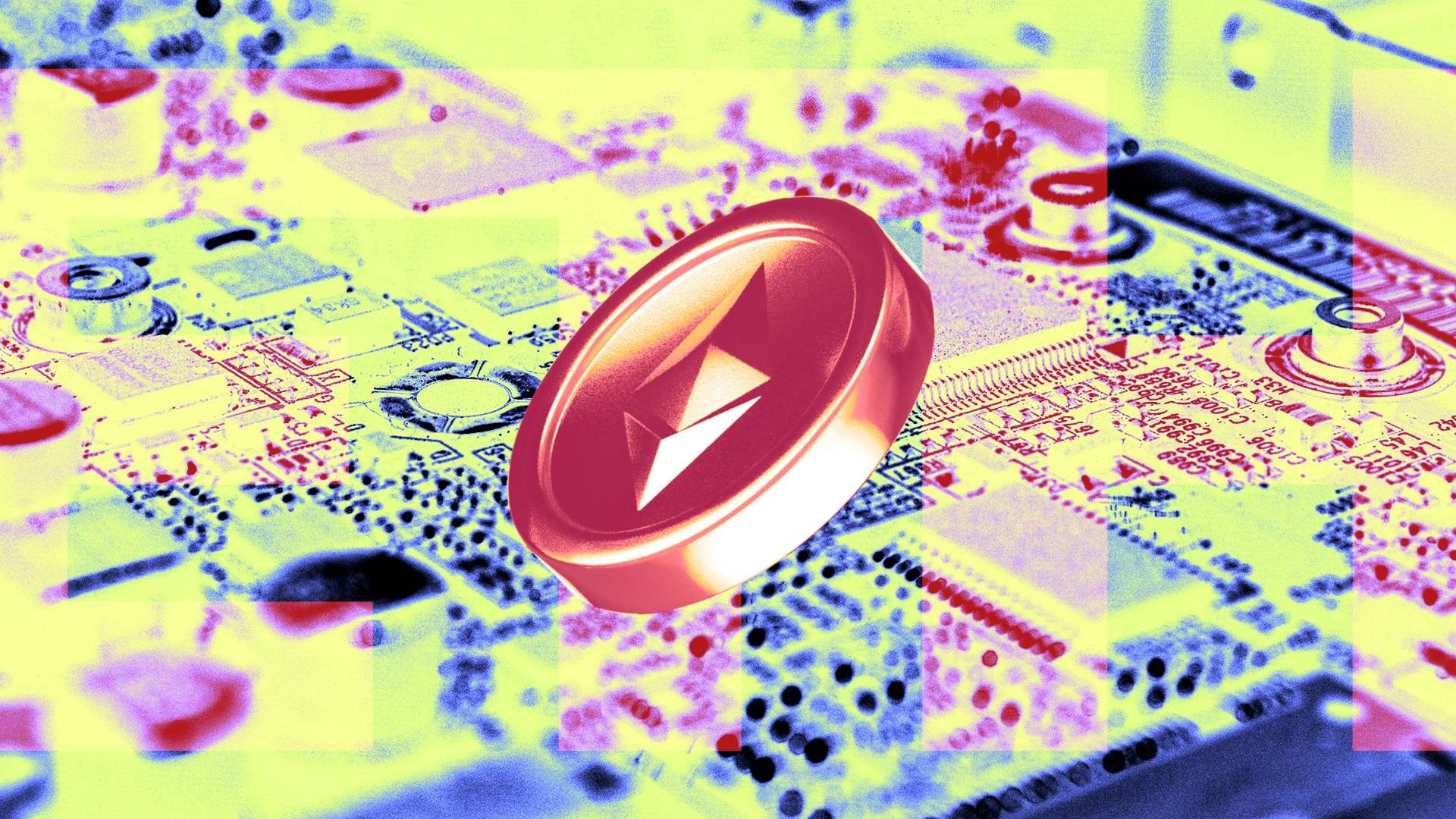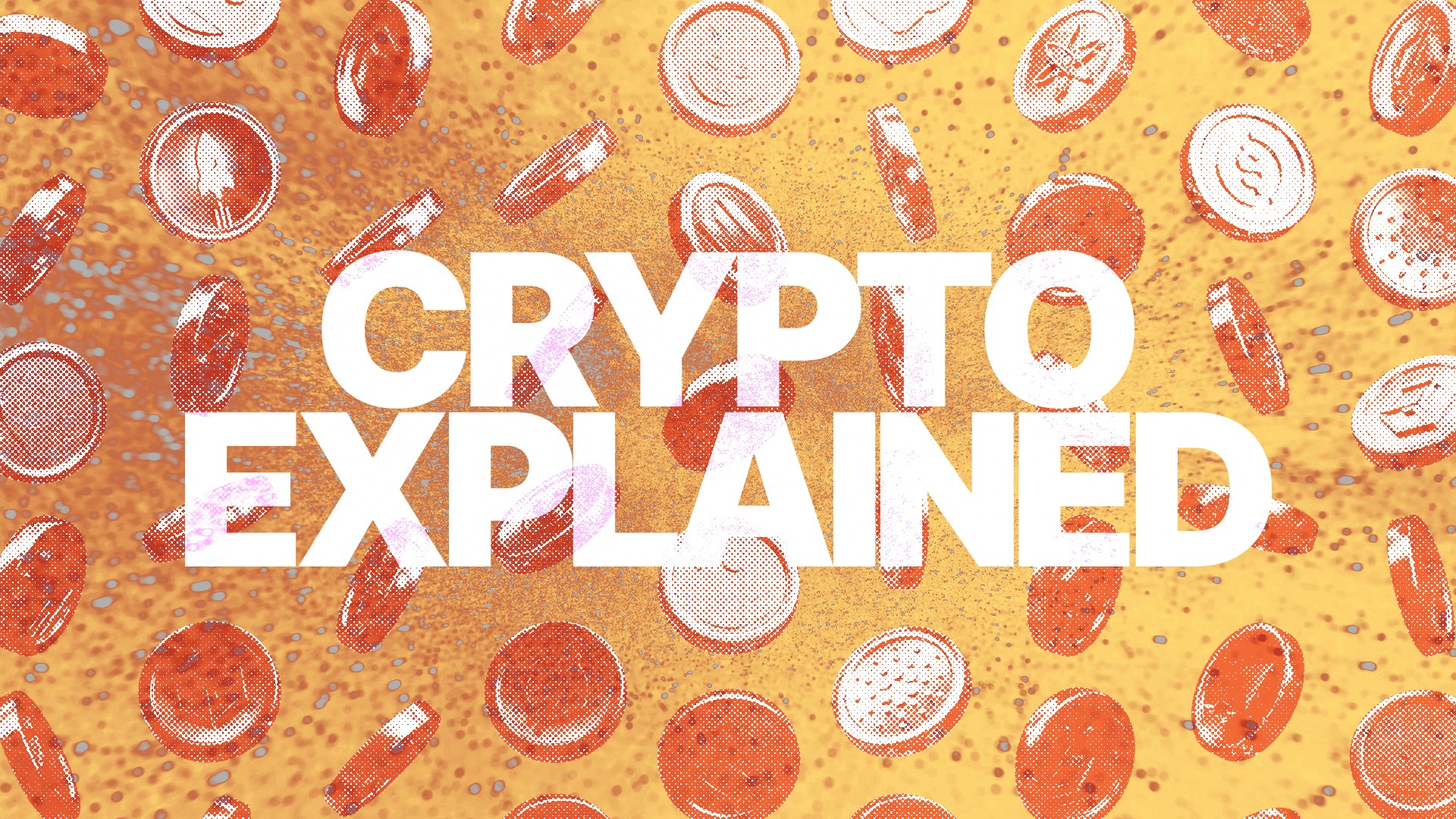Don’t invest unless you’re prepared to lose all the money you invest. This is a high‑risk investment and you should not expect to be protected if something goes wrong. Take 2 mins to learn more.
Crypto Asset Transfers: Send and Receive with Confidence
Knowing how to transfer crypto around networks is an important skill. Here's what you need to know.
In this article...
- Knowing how to transfer crypto assets is vital
- Knowing how to navigate blockchains and networks is also essential
- Here is what you need to know about transferring crypto assets

Transferring cryptocurrencies is a fundamental skill for any crypto investor.
Whether you're moving assets to secure them in a hardware wallet, sending funds to friends and family, or receiving payments, understanding how to safely and efficiently transfer crypto assets is essential.
What Are Crypto Transfers?
Crypto transfers involve moving digital assets across blockchain networks between different wallet addresses.
Unlike traditional bank transfers, crypto transfers typically:
-Operate on decentralised networks
-Don't require intermediary institutions
-Are irreversible once confirmed
-Require specific address formats for each cryptocurrency
Types of Transfers You Can Make with CoinJar
Your CoinJar account enables several types of cryptocurrency transfers.
External Transfers
Sending to or receiving from wallets outside the CoinJar ecosystem.
Internal Transfers
Moving crypto between CoinJar customers instantly via username.
Exchange Transfers
Moving assets between trading platforms.
Receiving Cryptocurrency into Your CoinJar
How to View Your Receiving Address
To receive any supported cryptocurrency into your CoinJar:
-Open the CoinJar app or log into the CoinJar website
-Navigate to the "deposit" section from your dashboard
-Select the cryptocurrency you wish to receive (Bitcoin, Ethereum, etc.)
-Copy your unique deposit address or scan the QR code provided
-Each cryptocurrency has its own unique address format within your CoinJar account.
Important Considerations When Receiving Crypto
Before providing your address to a sender:
Verify the correct network
Ensure the sender is using the correct blockchain network (e.g., ERC-20 for Ethereum tokens). Tokens supported by CoinJar are not supported on all networks / blockchains. Check supported cryptocurrencies first.
Double-check the address
Always verify the first and last characters of your receiving address.
Use the QR code when possible
This eliminates manual typing errors.You can also use the copy icon as well.
Minimum deposits
Be aware that some cryptocurrencies have minimum deposit amounts.
Understanding Confirmation Times
After someone sends cryptocurrency to your CoinJar address, the transaction will need blockchain confirmations:
Cryptocurrency: Typical Confirmation Time
Bitcoin (BTC): 10-60 minutes
Ethereum (ETH): 30 seconds-5 minutes
XRP: 3-5 seconds
Litecoin (LTC): 2.5-10 minutes
During periods of increased transaction activity, confirmation times may increase significantly.
Travel Rule
Funds still held up? If the other centralised platform does not supply the required travel rule information (typically when its based overseas) CoinJar is not permitted to accept the transfer under the Money Laundering Regulations, and must send it back.
Sending Cryptocurrency from Your CoinJar
-Log in to your CoinJar account via the app or website
-Navigate to the "Send" section in your dashboard
-Select the cryptocurrency you wish to send
-Enter the recipient's wallet address or scan their QR code
-For CoinJar customers, you can also send using their username if sending it to another CoinJar member
-Input the amount you wish to send
-Review the transaction details including network fees
-Confirm the transaction using your authentication method (2FA if enabled)
Understanding Network Fees
When sending cryptocurrency from your CoinJar:
-Network fees vary based on blockchain congestion
-Fee estimation is provided before confirming your transaction
-Fee structure varies between different cryptocurrencies.
Verifying Your Transaction
After sending, you can:
-Track your transaction through the CoinJar transaction history
-View the blockchain confirmation status using block explorers (If you’re using CoinJar and want to find the blockchain transaction ID, also called a TXID, you don’t have to ask customer support for help. You can find it yourself in the CoinJar app.
Just look for the receipt of the transaction you’re interested in. Once you’re on that receipt, you’ll see the TXID listed there. Next to it, there’s a little button or word that says “Copy.” Tap that, and the TXID will be copied to your phone or computer, so you can paste it wherever you need it.
-Receive confirmation notifications when the transaction completes.
Using the CoinJar App for Crypto Transfers
Mobile Transfer Features
The CoinJar mobile app offers several features to streamline crypto transfers.
-QR code scanning for quick address input
-Address book functionality to save frequently used addresses
-Biometric authentication for transaction security
-CoinJar provides email notifications to keep users updated on transaction status, for fiat and crypto deposits (not however for fiat withdrawals or sending crypto).
-Transaction history with detailed status information
Advanced Features
Beyond basic transfers, the CoinJar app provides:
-An address book for enhanced security
-Best Practices for Secure Crypto Transfers
Security Measures
When transferring cryptocurrency, always:
-Verify addresses multiple times before confirming transactions
-Start with small test amounts when sending to new addresses
-Enable two-factor authentication (2FA)
-Update your app to the latest version for security patches
-Use secure, private internet connections when initiating transfers
Common Pitfalls to Avoid
-Sending to incorrect addresses: Triple-check before confirming
-Using the wrong blockchain network: This can result in permanent loss
-Ignoring withdrawal limits: Be aware of daily or periodic limits
-Forgetting memo/tag requirements: Some cryptocurrencies (like XRP) require destination tags, and some cryptos like XLM require memos, failing to include them can complicate recovery.
-Neglecting network fees: Insufficient fees can cause transaction delays. Network fees/ gas fees are dynamic and can spike during high demand.
Troubleshooting Common Transfer Issues
Delayed Transactions
If your transaction is taking longer than expected:
-Check network status for congestion issues
-Verify the transaction hash on a blockchain explorer
-Confirm fee adequacy for current network conditions
-Contact CoinJar support if delays exceed normal timeframes
Missing Deposits
If you've sent cryptocurrency to your CoinJar but it hasn't appeared:
-Verify the correct address was used
-Check the blockchain explorer to confirm the transaction was sent
-Confirm the correct network was selected (especially important for tokens)
-Wait for required confirmations before contacting support
Advanced Transfer Considerations
Cross-Chain Transfers
When transferring between different blockchains:
-Use supported exchanges or bridges for cross-chain transfers
-Never send directly between incompatible networks (e.g., Bitcoin address to Ethereum network)
Institutional Transfers
For business accounts and larger transfers:
-Higher limits may be available with appropriate verification
-Additional security measures may be required.
Conclusion: Crypto Asset Transfers
Mastering crypto asset transfers is essential for effectively managing your digital assets.
Taking time to verify addresses, understand network fees, and follow security best practices will ensure your crypto transfer experience is smooth.
Frequently asked questions
Is there a minimum amount I can send or receive?
Yes, minimum amounts vary by cryptocurrency and are designed to exceed network fees to prevent dust attacks.
How long do cryptocurrency transfers take?
Transfer times depend on:
-The cryptocurrency being transferred -Current network congestion -The fee paid for the transaction -Number of required confirmations
Can I cancel a cryptocurrency transfer?
Unlike traditional bank transfers, cryptocurrency transactions cannot be reversed once they are broadcast to the blockchain. Double-check all details before confirming transfers.
What happens if I send crypto to the wrong address?
Unfortunately, if you send cryptocurrency to the wrong address, it typically cannot be recovered. Always triple-check addresses before confirming transactions.

Suggested Articles

What is Bitcoin (BTC)? What is "Digital Gold" Used For?
What is Bitcoin? It is a digital currency that can be traded, exchanged, and used as a form of payment independent of central banks and governments.Read more
What is Ethereum? What is ETH Used For?
Ethereum is a decentralised blockchain-based open-source software platform that allows for the development of decentralised applications (dApps).Read more
What Is Crypto? How do Cryptocurrencies Work?
Crypto has become incredibly popular. But how does this digital currency work? And are there cryptos other than Bitcoin? Read moreBrowse by topic
Specific risks associated with stablecoins: There is a risk that any particular stablecoin may not hold their value as against any fiat currency; or may not hold their value as against any other asset. Stablecoins carry the following risks:
Depegging events: Depegging events may occur with stablecoins that fail to maintain adequate controls and risk mitigants. A depegging event is when the value of the stablecoin no longer matches the value of the underlying asset. This could result in a loss of some or all of your investment.
• Counterparty risk: Counterparty risk arises when an asset is backed by collateral, involving a third party maintaining the collateral, which introduces risk if the party becomes insolvent or fails to maintain it.
• Redemption risk: Redemption risk refers to the possibility that an asset's ability to be redeemed for underlying collateral may not be as anticipated during market fluctuations or operational issues.
• Collateral risk: Collateral risk refers to the possibility of the collateral's value declining or becoming volatile, potentially impacting the asset's stability, particularly when it is another crypto-asset.
• Exchange rate fluctuations: Stablecoins, often denominated in US Dollars, expose investors to fluctuations in the USD:GBP exchange rate.
• Algorithmic risk: Algorithm risk refers to the possibility of an asset's stability being compromised due to unexpected failure or behaviour of the underlying algorithm, potentially leading to loss of value.
Specific risks associated with meme coins: 'Meme coins' (e.g. DOGE, SHIB, PEPE) are crypto-assets whose value is driven primarily by community interest and online trends. Meme coins carry the following risks:
• Volatility risk: Meme coins can have extreme price volatility, often experiencing rapid and unpredictable price fluctuations within short periods. The value of meme coins can be influenced by social media trends, celebrity endorsements, and other factors unrelated to traditional investment fundamentals.
• Lack of utility: Meme coins often lack intrinsic value or utility, being primarily driven by community interest, online trends, and speculative trading.
• Market manipulation: Meme coins may be susceptible to increased risk of market manipulation including 'pump-and-dump' schemes, where the price is artificially inflated followed by a sudden crash.
• Lack of transparency: Meme coins may have limited available information about their development teams, goals, and financials. This lack of transparency can make it challenging to assess the credibility and potential of a meme coin accurately.
• Emotional investing: Meme coins often garner strong emotional reactions from investors, leading to impulsive decisions. Emotional trading activity can amplify losses. Specific risks associated with DeFi tokens
Decentralised Finance (or 'DeFi') tokens (e.g. UNI, AAVE) are crypto-assets linked to financial applications and protocols built on decentralised blockchain technology.
DeFi tokens carry the following risks:Smart contract risk: DeFi relies heavily on smart contracts. Even a minor coding error or oversight can lead to a contract being exploited, potentially resulting in significant losses for DeFi tokens.
Regulatory risk: DeFi operates in a decentralised manner, often without intermediaries or financial crime controls. Regulatory bodies across jurisdictions might introduce new regulations impacting the use, value, or legality of certain DeFi protocols or assets. Rug-pulls / Exit scams: Some DeFi projects might be launched by anonymous or pseudonymous teams, increasing the risk of "rug pulls" where developers abandon the project and withdraw funds, leaving investors with worthless tokens.
Data/oracle risk: DeFi protocols often rely on external data sources or 'oracles. Manipulation or inaccuracies in these data sources can lead to unintended financial outcomes within the protocols.
Protocol complexity: The complexity of some DeFi protocols can make it difficult for average users to fully understand the mechanisms and associated risks.
If you use a credit card to buy cryptocurrency, you would be putting borrowed money at a risk of loss. We recommend you obtain financial advice before making a decision to use your credit card to purchase cryptoassets or to invest in cryptoassets.
Your information is handled in accordance with CoinJar’s Privacy Policy.
Cryptoassets traded on CoinJar UK Limited are largely unregulated in the UK, and you are unable to access the Financial Service Compensation Scheme or the Financial Ombudsman Service.
We use third party banking, safekeeping and payment providers, and the failure of any of these providers could also lead to a loss of your assets.
We recommend you obtain financial advice before making a decision to use your credit card to purchase cryptoassets or to invest in cryptoassets. Capital Gains Tax may be payable on profits.
CoinJar’s digital currency exchange services are operated in the UK by CoinJar UK Limited (company number 8905988), registered by the Financial Conduct Authority as a Cryptoasset Exchange Provider and Custodian Wallet Provider in the United Kingdom under the Money Laundering, Terrorist Financing and Transfer of Funds (Information on the Payer) Regulations 2017, as amended (Firm Reference No. 928767).
Apple Pay and Apple Watch are trademarks of Apple Inc. Google Pay is a trademark of Google LLC.
This site is protected by reCAPTCHA and the Google Privacy Policy and Terms of Service apply.

